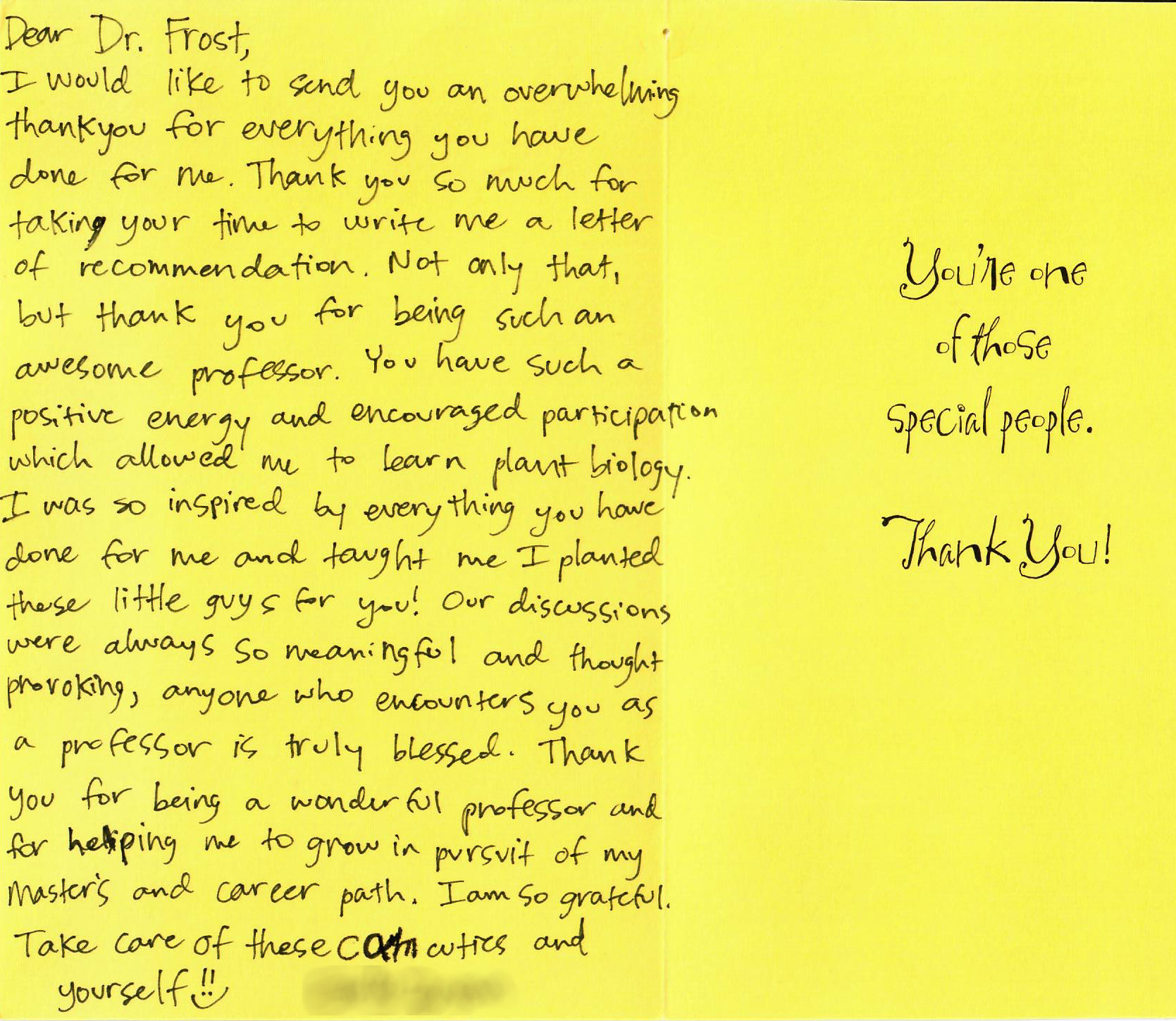The Frost Laboratory: Plant Integrative Biology and Chemical Ecology
Plant Biology (Bio 301)
Course Description
Plants are, in a word, remarkable. This course examines the biology of plants and other organisms with cell walls (including bacteria, fungi, protists, and algae). These distantly related organisms include primary producers that energize the biosphere, decomposers that recycle nutrients and economic species that provide most of humanity’s food, fiber and medicine. We will set the stage with some perspective of major milestones in plant biology placed in evolutionary time, and use this as a lens through which to consider three broad themes. In theme one, we will move through a general review of basic biology, energetics and genetics of a plant cell. This will include a foray into biotechnology topics, culminating in positional arguments in a discussion format. We will also conduct two experiments early in the semester: one to assess plants on the UofL campus and one measuring plant behavior. Theme two will consider plant diversity in broad detail by comparing and contrasting each group in an evolutionary context, addressing some of the remarkable biology that defines what we consider plants. Theme three will consider basic aspects of plant physiology, including hormone action, responses to environmental stress, and nutrient and water uptake. Finally, the course will wrap-up by considering the intricate relationship between humans and plants (on which we ultimately depend), as well as selected readings on how variation in a basic body plan contributes to the variety of functions performed by different plant organs and species.
Learning Objectives
Upon completion of this course, students should be able to:
1. Describe basic phylogenetic relationships among plants.
2. Appreciate the remarkable complexity and diversity of plants.
3. Understand the detailed process of photosynthesis.
4. Identify unique cellular features of plant cells.
5. Understand the basics of plant physiology and anatomy related to controlling growth and responding to environmental variation.
6. Describe the various ways that plants influence people and our society.
7. Critically evaluate and discuss GMO technology, with particular regard to plants.
8. Understand fundamentals of designing and reporting a research experiment.
Plants are, in a word, remarkable. This course examines the biology of plants and other organisms with cell walls (including bacteria, fungi, protists, and algae). These distantly related organisms include primary producers that energize the biosphere, decomposers that recycle nutrients and economic species that provide most of humanity’s food, fiber and medicine. We will set the stage with some perspective of major milestones in plant biology placed in evolutionary time, and use this as a lens through which to consider three broad themes. In theme one, we will move through a general review of basic biology, energetics and genetics of a plant cell. This will include a foray into biotechnology topics, culminating in positional arguments in a discussion format. We will also conduct two experiments early in the semester: one to assess plants on the UofL campus and one measuring plant behavior. Theme two will consider plant diversity in broad detail by comparing and contrasting each group in an evolutionary context, addressing some of the remarkable biology that defines what we consider plants. Theme three will consider basic aspects of plant physiology, including hormone action, responses to environmental stress, and nutrient and water uptake. Finally, the course will wrap-up by considering the intricate relationship between humans and plants (on which we ultimately depend), as well as selected readings on how variation in a basic body plan contributes to the variety of functions performed by different plant organs and species.
Learning Objectives
Upon completion of this course, students should be able to:
1. Describe basic phylogenetic relationships among plants.
2. Appreciate the remarkable complexity and diversity of plants.
3. Understand the detailed process of photosynthesis.
4. Identify unique cellular features of plant cells.
5. Understand the basics of plant physiology and anatomy related to controlling growth and responding to environmental variation.
6. Describe the various ways that plants influence people and our society.
7. Critically evaluate and discuss GMO technology, with particular regard to plants.
8. Understand fundamentals of designing and reporting a research experiment.


